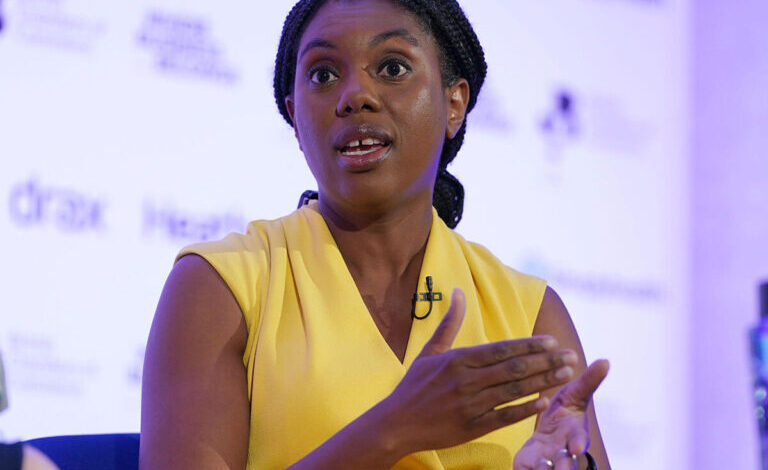Tories to replace Badenoch as party leader after poor ratings

Conservative Party leader, Kemi Badenoch, has not ruled out the possibility of local-level coalitions with Reform UK following the upcoming local elections in England, amidst discussions within the party to replace her due to poor approval ratings.
While speaking to Sky News on Sunday morning, the Conservative leader firmly rejected any national pact with Nigel Farage’s party but said the situation at the council level is “different.”
When asked whether she would ban Conservative councillors from forming coalitions with Reform after the elections, Badenoch said: “I want to be very clear, because there has been a lot of confusion around this.

“I am not entering into any coalition with Nigel Farage or Reform at the national level.”
She continued: “At the local level, it’s a different matter.
“Unlike a national election, you can’t rerun a local election. There could be no overall control.
“I’ve told our councillors — and I trust them, they are very experienced — that they must do what is right for their communities.
“Currently, we are already in coalitions with Liberal Democrats, Independents, and even Labour in some councils. Councillors must assess who they are partnering with and focus on delivering for local residents.”
Badenoch stressed that she does not want to hear about “stitch-ups” or pre-arranged deals before election results are confirmed, reiterating that councillors should prioritise the needs of their communities.
This is coming at a time when some party stalwarts are mooting the idea of kicking Badenoch out due to poor approval ratings.
With local elections in England fast approaching, frustration among Conservative MPs and officials is growing, with many questioning Badenoch’s ability to lead the party into the 2029 general election.
According to over two dozen insiders who spoke to Bloomberg anonymously, momentum is building behind Robert Jenrick, the right-wing shadow justice secretary, as a potential successor.
The dissatisfaction comes as the Conservatives struggle in the polls, and critics argue Badenoch, who assumed leadership on November 2, 2024, has failed to tackle pressing issues, leaving the party vulnerable to challenges from Nigel Farage’s Reform Party.
While Badenoch’s spokesperson declined to respond to the speculation, Jenrick’s camp pointed to a previous interview where he publicly supported her and urged patience.
The outlook appears bleak ahead of the local elections, where the Tories are projected to lose heavily.
The elections are considered a key test of the party’s strength ahead of 2029. Unlike in 2021, when the Conservatives dominated local contests, buoyed by Boris Johnson’s vaccine rollout, this time, they face predictions of historic losses.
Political scientist Rob Ford of the University of Manchester described the coming results as likely to be a “total and unmitigated disaster.”
After briefly gaining ground over Labour late last year, the Conservatives have now fallen behind both Labour and Reform by more than five points, with Reform making significant gains on the right.
While Badenoch was initially expected to have until the summer of 2026 to stabilise the party, some members now believe a leadership challenge could come much sooner.
A senior figure within the party described her as having entered the “political death zone,” with MPs and donors increasingly debating her future.
Badenoch faced a daunting task after succeeding Rishi Sunak in November 2023 following a devastating defeat to Labour.
Although some supporters argue that party rebuilding takes time, critics say Badenoch has prioritised issues like net-zero policies and transgender debates, while neglecting voter concerns over crime and immigration.
Her performances at Prime Minister’s Questions have also been heavily criticised, with Labour leader Keir Starmer often deflecting her attacks and highlighting Conservative failings.
Meanwhile, Farage’s Reform Party continues to build momentum, complicating her efforts to consolidate support.
Some MPs argue Badenoch is caught between being too right-wing to attract centrist voters but not right-wing enough to fend off Farage’s populism.
Jenrick, who has gained popularity on the Conservative right through strong stances on crime and national sovereignty, is increasingly viewed as a credible alternative.
However, centrists warn that a Jenrick leadership could shift the party even further to the right, risking further alienation of moderate voters.
The situation remains fluid, and much will depend on the results of the upcoming local elections.
Analysts suggest that if media attention focuses more on Farage’s rise than the Tories’ collapse, Badenoch might still survive the mounting pressure, for now
Post Views: 127





